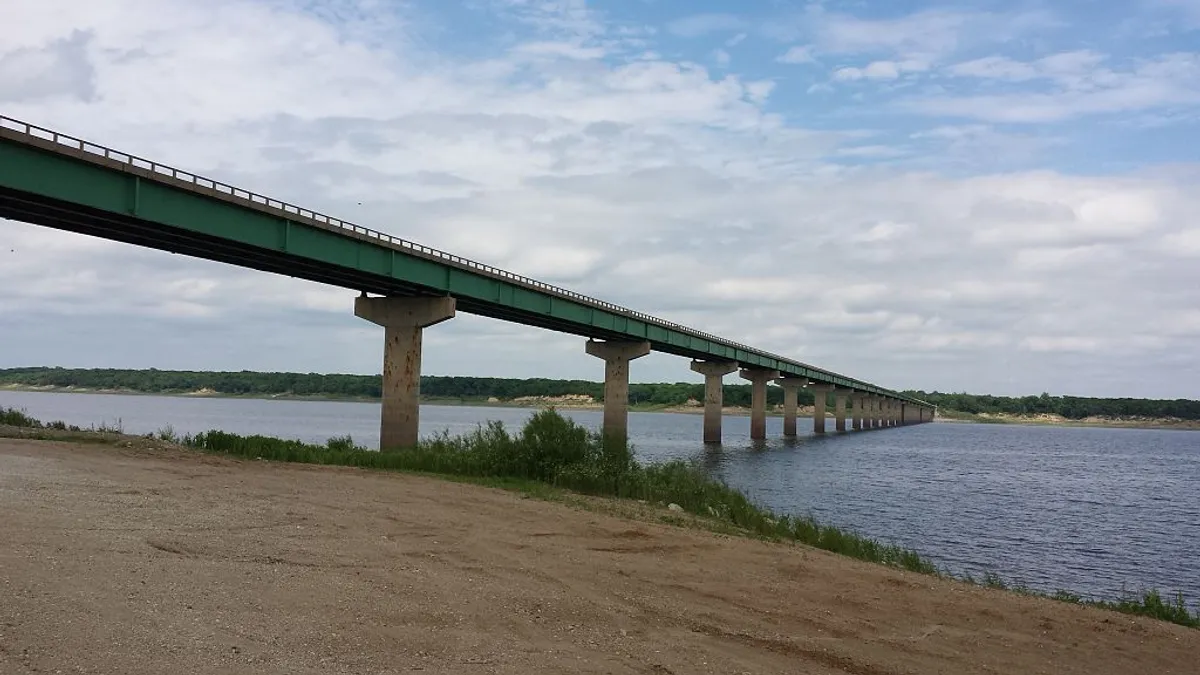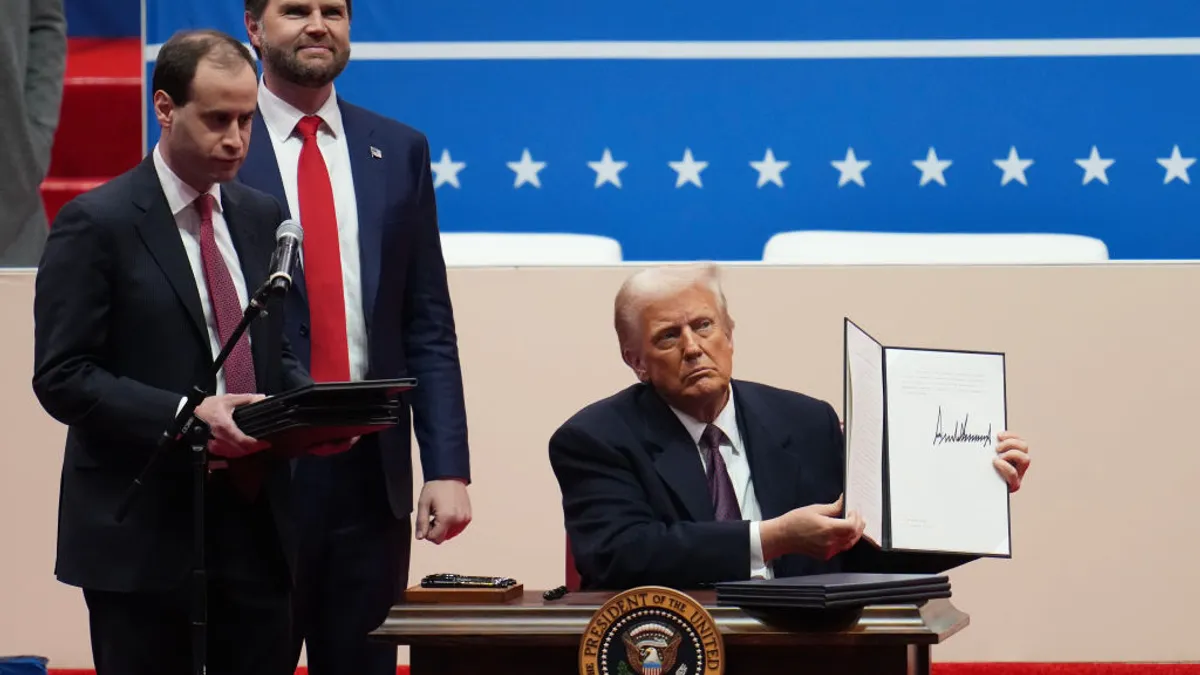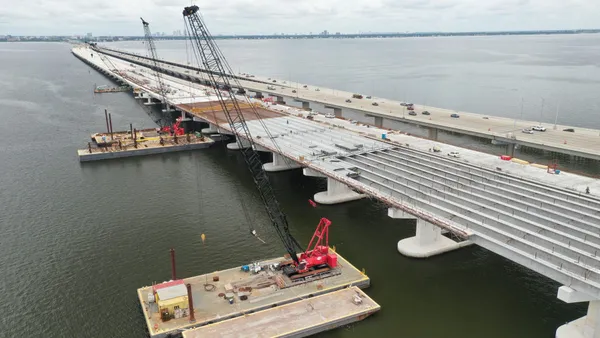Dive Brief:
- The board of directors for the Illinois State Toll Highway Authority (Illinois Tollway) earlier this month awarded six construction and engineering contracts totaling $228.7 million, including one valued at $184.6 million for bridge reconstruction on the Tri-State Tollway.
- The authority selected Chicago-based F.H. Paschen, S.N. Nielsen & Assoc. (Paschen Nielsen) to rebuild the TriState's northbound Mile Long Bridge under the largest construction contract ever issued by the Tollway.
- Other awards include a $29.5 million contract to Jacobs Engineering for design corridor manager services for the I-490 Tollway project; $8.2 million to Paschen Nielsen for pavement and structural preservation and rehabilitation on the I-88 Reagan Memorial Tollway; and $5 million to Chicago-based Infrastructure Engineering for systemwide, on-request construction management services.
Dive Insight:
So far this year, the Illinois Tollway has awarded almost $376 million of construction and engineering contracts to advance its $14 billion, 15-year Move Illinois capital program. The authority has invested $6.7 billion in the initiative since it began in 2012, creating or sustaining an estimated 68,000 jobs.
As part of the program, which is funded by bond and toll revenue, the authority is expanding access to O’Hare International Airport via improvements to the existing system and construction of new, all-electric toll roads. The authority also aims to increase the level of regional mobility and create as many as 120,000 jobs over the program’s duration.
While the Tollway has the means to deliver on its program, the Illinois DOT is underfunded by tens of billions of dollars.
In February, former Acting Secretary Matt Magalis told state lawmakers that the agency needs a minimum of $39 billion to meet its infrastructure needs during the next 10 years. The highway maintenance would require between $13 billion and $15 billion, he said, while $19 billion would be needed for public transit, $4 billion for freight rail and billions more to increase highway capacity. The state Senate is considering this and other agency requests as it puts together a long-term spending bill.
State transportation agencies all over the U.S. struggle to meet their financial needs. Minnesota Transportation Commissioner Margaret Anderson Kelliher this month said her agency’s long-term funding prospects were “bleak” and projected an $18 billion shortfall during the next 20 years.
Besides increases in gas taxes or other user fees, another option to bolster funding for state DOTs are allocations through the Federal Highway Administration’s Highway Trust Fund. However, government officials have predicted that the financing mechanism is headed for insolvency unless it finds another revenue stream or increases existing ones. Taxes on gas and diesel fuel currently fund the trust account, but federal fuel taxes haven’t seen an increase since 1993, and lawmakers have resisted raising them.














